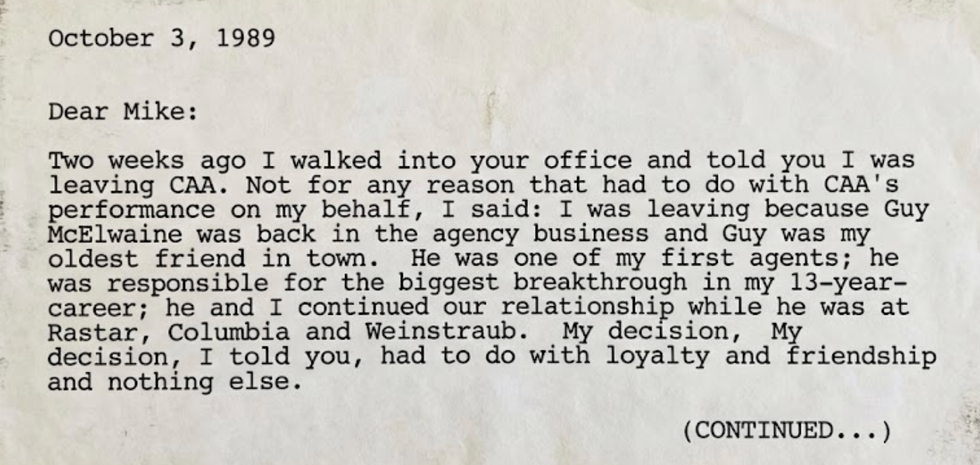In the aftermath of violence that left one dead in Charlottesville, VIRGINIA, in early August, the web hosting service GoDaddy shut down The Daily Stormer, the white supremacist website that promoted the rally there. Many outlets reacted to the decision with applause, while others posited that the decision set a dangerous precedent, threatening the free speech of us all.
For Lux Alptraum, a sex writer and educator, the decision reinforced a troubling disparity in digital privilege, as she outlined an issue of The Lux Letter, her weekly newsletter about sex in the media. As Alptraum wrote, censorship has defined the internet whether we realize it or not, and for those who work in sex-related fields, censorship and barriers to entry are the norm rather than highly publicized exceptions. Without enforcing an outright ban on sexual content, web services, search engines, and social media platforms have all targeted the providers of sexual content with varying degrees of subtlety.
Take, for example, Sargon of Akkad, an anti-feminist troll who earns roughly $8,000 a month on the subscription content website Patreon for posting videos to YouTube that are, by and large, hate-fueled responses to feminism and progressivism, and that encourage anti-Semitism, racism, and misogyny. Sargon of Akkad, whose real name is Carl Benjamin, recently targeted feminist media critic Anita Sarkeesian at her VidCon panel by enlisting enough friends to take up the first three rows of the audience and taunt her for the entirety of the panel. In late June, Mic published a story with a headline about Patreon “investigating” Benjamin amid the mountain of evidence of him harassing Sarkeesian. Two hours later, Patreon determined that Benjamin hadn’t violated the funding platform’s code of conduct.
[quote position="right" is_quote="true"]Even before Charlottesville, I was just wondering, why aren’t we treating hate speech and the alt-right the way that we treat sex?[/quote]
The word “investigation” comes up a lot when the public outcry against online hate reaches an unavoidable pitch, says Alptraum. Yet it’s misleading, she adds, for web platforms to imply they have to “look into” solutions for addressing the problem of online harassment when they already have the tools at their disposal for excluding participants they deem objectionable. For example, sex workers will often see their personal PayPal accounts shut down even if they’re not using them for sex work, says Alptraum. Meanwhile, #twerking is a banned hashtag on Instagram, while the tag #KKK has been used nearly 1 million times.
Then there are the more subtle instances of disapproval. For instance, Lux points to how difficult she has found it — in her experience — to locate a sex educator’s Patreon page through a simple name-based search, while hate groups sometimes rise to the surface of search results with remarkable ease. (She invites readers to try it for themselves on the search tool on Patreon’s site. Search for Erika Moen, creator of sex education comics, even using her exact name; then try Sargon of Akkad with even a typo or two.)
“Patreon [specifically] has these radically different standards for things that are sex-related versus things that are hate-related,” says Alptraum. “Even before Charlottesville, I was just wondering, why aren’t we treating hate speech and the alt-right the way that we treat sex?”
Most would be surprised to learn the history of this double standard intertwines with the history of online banking. In the early 2000s, a of couple major credit card companies decided to charge higher fees for users working in adult entertainment, deeming the industry as a whole “high-risk.” This decision had a ripple effect, influencing nearly all other payment processors to follow suit. While higher fees don’t constitute censorship explicitly, they do make it a lot harder to operate once users have been targeted, says Alptraum. To her point, banks could easily categorize hate speech as a high-risk endeavor. Unlike the convoluted, evidence-poor arguments about porn possibly leading to lascivious behavior, there’s a direct connection between hate speech and violence. We know that much from Charlottesville alone.
[quote position="full" is_quote="true"]Once something’s folded into the mainstream, it’s normalized, and that’s true for both good and bad ideas.[/quote]
“As I see people having this moral dilemma about making the internet a more challenging place for people who want to send a message of violence and hate, I think it is worth asking: Why do we view that as something people have more of a right to promote than sexual content?” Alptraum clarifies that while she doesn’t envision a world where there are no restrictions on sexually explicit — aka hardcore — content, she does hope our assumptions change about what’s inherently harmful for impressionable young people to see. We’re just now beginning to talk about the radicalization of young American men in the same language we typically reserve for violent extremist groups in far-flung parts of the world, says Alptraum. “It’s just so interesting to me that when a child sees porn, they’re ‘ruined for life,’” she says, “but we’re seeing firsthand young men are being encouraged to commit violent acts against people.”
This all speaks to a deeper problem in American culture where we often find ourselves more comfortable talking about violence than pleasure. But it doesn’t have to be this way. Once something’s folded into the mainstream, it’s normalized, and that’s true for both good and bad ideas.
So, how do we disable hate groups without threatening free speech? Treat hate like we treat porn, says Alptraum. This wouldn’t require tech giants to develop any new skills or methods for combing out specific groups of people. Banks stand to make more money leveraging stiff fees on hate-fueled transactions, and tech companies won’t have to worry whether they’ve enabled the next big violent extremist group.
And to counter the argument that shunning hate groups from mainstream platforms will just inspire new hate-centered websites to pop up in their place, consider the cutback in exposure once neo-Nazi threads aren’t positioned right alongside Photoshop challenges. “Unlike porn,” says Alptraum, “I don’t think most people are going to be readily seeking out information about how white people are superior.” Let’s hope for everyone’s sake that that’s true.

















 Two people study a mapCanva
Two people study a mapCanva Foggy Chinese villageCanva
Foggy Chinese villageCanva

 Older woman drinking coffee and looking out the window.Photo credit:
Older woman drinking coffee and looking out the window.Photo credit:  An older woman meditates in a park.Photo credit:
An older woman meditates in a park.Photo credit:  Father and Daughter pose for a family picture.Photo credit:
Father and Daughter pose for a family picture.Photo credit:  Woman receives a vaccine shot.Photo credit:
Woman receives a vaccine shot.Photo credit: 
 An excerpt of the faxCanva
An excerpt of the faxCanva

 Robert Redford advocating against the demolition of Santa Monica Pier while filming "The Sting" 1973
Robert Redford advocating against the demolition of Santa Monica Pier while filming "The Sting" 1973